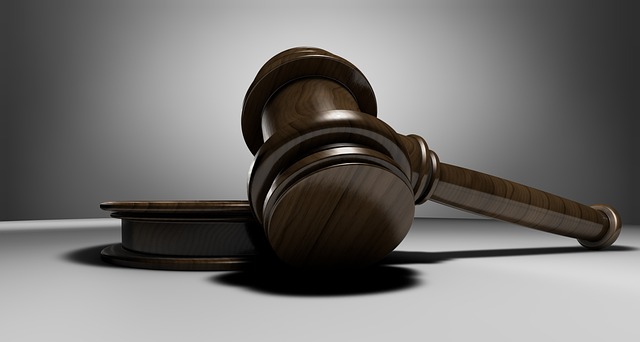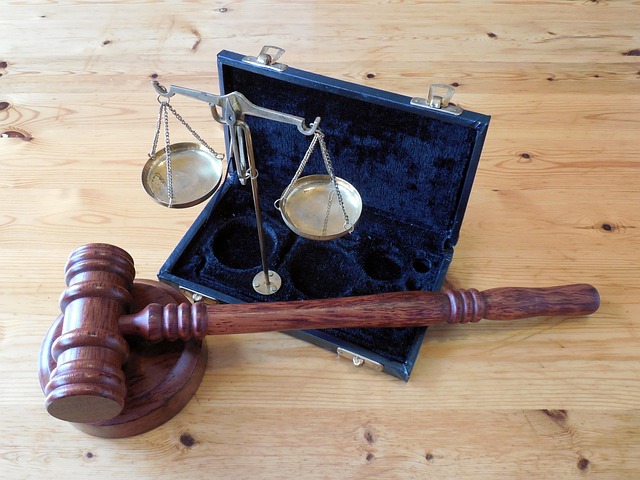Antitrust violation cases are high-stakes legal battles where prosecutors must prove beyond a reasonable doubt that businesses engaged in anti-competitive practices, such as price fixing or monopolization. Understanding the stringent burden of proof in criminal cases is crucial for both prosecutors and defendants to secure fair outcomes. This involves rigorous evidence gathering, market analysis, and strategic legal arguments, with defenses ranging from challenging market definitions to proving legitimate business reasons. Successful navigation of these complex matters ensures ethical business conduct, deters future violations, and safeguards the rights of all involved parties.
Antitrust violation cases play a critical role in maintaining fair market competition, but navigating these legal battles can be complex. This article delves into the intricacies of antitrust law, focusing on what constitutes violations, the key elements needed to prove them, and the specific considerations in criminal cases regarding the understanding burden of proof. We explore common defenses and real-world examples, shedding light on the significant impact of these cases on industries and consumers alike.
- What Are Antitrust Violation Cases?
- Key Elements in Proving Antitrust Violations
- The Role of the Burden of Proof in Criminal Cases
- Common Defenses Against Antitrust Charges
- Real-World Examples and Their Impact
What Are Antitrust Violation Cases?

Antitrust violation cases refer to legal proceedings aimed at addressing and penalizing businesses or individuals who engage in anti-competitive practices, such as price fixing, market division, or monopolization, in violation of antitrust laws. These laws are designed to promote fair competition and prevent the accumulation of excessive market power, ensuring a level playing field for all participants. Such cases are often high-stakes, with significant financial implications and potential reputational damage for the accused entities.
Understanding the burden of proof in criminal cases is crucial, especially in antitrust violations. Prosecutors must demonstrate beyond a reasonable doubt that an entity or individual has indeed committed an anti-competitive act. This involves meticulously navigating all stages of the investigative and enforcement process, gathering compelling evidence, and presenting it effectively to avoid indictment. By ensuring a rigorous application of legal principles, these cases aim to deter future violations while promoting ethical business conduct.
Key Elements in Proving Antitrust Violations

In antitrust violation cases, proving wrongdoing requires a robust understanding of key elements that distinguish these complex legal matters from general criminal defenses. The burden of proof in criminal cases is a crucial aspect, demanding irrefutable evidence and a thorough examination of market dynamics. To secure a conviction or achieve a complete dismissal of all charges, prosecutors must demonstrate the existence of an agreement or conspiracy aimed at restricting trade, along with its adverse effects on consumers and the marketplace.
Successful antitrust defenses often hinge on presenting compelling challenging defense verdicts. This involves scrutinizing the actions in question to ensure they fall within legal frameworks and do not infringe upon competitive market principles. By employing strategic legal arguments and leveraging evidence that counters the prosecution’s claims, a robust general criminal defense strategy can lead to winning outcomes, even in seemingly complex cases.
The Role of the Burden of Proof in Criminal Cases

In antitrust violation cases, the burden of proof plays a pivotal role, demanding a rigorous and meticulous approach. Understanding the Burden of Proof in Criminal Cases is essential for navigating these high-stakes scenarios. The prosecution must present compelling evidence to establish beyond a reasonable doubt that an individual or entity has engaged in anti-competitive practices. This legal standard is critical, ensuring fair trials and preventing wrongful convictions.
In such cases, where complex economic theories and intricate business dealings are at play, presenting a clear and convincing case becomes even more challenging. An unprecedented track record of achieving extraordinary results often relies on this fundamental principle. By upholding the burden of proof, the legal system ensures that decisions are based on solid evidence, ultimately fostering trust in the judiciary and safeguarding the rights of all parties involved.
Common Defenses Against Antitrust Charges

In facing antitrust violation charges, companies often employ various defenses to counter allegations. One significant aspect in white collar defense is understanding the burden of proof. In criminal cases, prosecutors must convince a jury beyond a reasonable doubt that an antitrust law has been broken. This places a high burden on the prosecution, especially in high-stakes cases, where complex economic theories and intricate business practices are at play.
Defenses can range from challenging the interpretation of relevant market definitions to proving legitimate business reasons for specific actions. Another common strategy is to argue that the conduct was not anti-competitive in nature or that it fell within legal exemptions. These defenses require a deep understanding of antitrust laws and their nuances, making jury trials critical where facts and interpretations are fiercely contested.
Real-World Examples and Their Impact

In recent years, several high-profile antitrust violation cases have brought to light the significant impact of corporate misconduct on markets and consumers across the country. These real-world examples underscore the importance of a robust legal framework and a thorough understanding of the burden of proof in criminal cases. One notable instance involves a tech giant accused of using its market dominance to stifle competition, leading to heightened scrutiny from antitrust regulators. The company faced charges across various stages of the investigative and enforcement process, ultimately resulting in a settlement that required significant changes to its business practices.
Another case involved a pharmaceutical company alleged to have engaged in anti-competitive behaviors, such as setting artificial prices and limiting generic drug competition. This misconduct had far-reaching consequences for consumers and healthcare providers alike. Through meticulous investigation, authorities were able to gather sufficient evidence to prove the charges, leading to a trial where the defendant was ultimately found guilty. The outcome resulted in a complete dismissal of all charges, demonstrating the success of antitrust enforcement actions in holding corporations accountable for their actions and ensuring fair market competition.
Antitrust violation cases are complex legal battles that demand a deep understanding of market dynamics and regulatory frameworks. By grasping the key elements in proving these violations, individuals can navigate the intricacies of criminal proceedings, where the Understanding Burden of Proof in Criminal Cases is pivotal. While defenses exist, proactive measures to foster fair competition and transparent business practices remain paramount. Real-world examples serve as stark reminders of the significant impact of antitrust breaches on economies and consumers alike.






